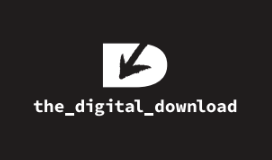
Cheryl Boyd
Global Vice President, Digital Strategies

“Cheryl, I want you to lead digital for the ministry.” I was standing in my kitchen when my director called me to tell me that I would be leading our national ministry in Digital Strategies. My first response sounded more like Moses than Mary: Who, me?
I had no training or experience. I had no education in using digital. I didn’t even have a team of people to join me. My first reaction was to list all of the things I didn’t have.
You feed them. Jesus said this to Philip in the Gospels as 5,000 hungry people sat on the hillside around them. Jesus knew who He was talking to. He knew that Philip was not the owner of a restaurant or a grocer. He knew what Philip had, and He knew what he lacked. This didn’t stop Jesus from handing him this task.
With what? I feel deeply for Philip as he responded to this calling. He may have wondered if Jesus forgot who He was talking to and if Jesus was kidding. Jesus was not kidding.
How much bread do you have? Go and find out. Jesus was asking Philip to focus on what he had, not what was lacking. He did not want Philip to guess or make assumptions. He wanted him to go and look. He was asking Philip to take an inventory of God’s provision.
You know what happened next. Jesus took a meager lunch and turned it into abundance—more than enough.
Many of you have stories like mine. Your leader informed you that the ministry needed you to lead Digital Strategies. As you looked at what you had, it did not seem like nearly enough.
This article is not long enough for me to tell you all of the stories I have heard from you, our GDS network, of how Jesus has given you more than you could imagine in response to your willingness to obey His call on your life. Be sure to read the stories from Salam and Bustos to hear about two of them.
Among our tribe of Digital Strategies leaders are visionaries and activators. We have dreamers and planners. We are a group that sees opportunities to leverage innovation for the sake of the Great Commission. Our plans require expensive equipment, a big team, robust infrastructure, and strong collaboration. Your current reality may not include any of those things. But what do you have? Take an inventory and thank God for the flip phone, the radio, and the flashlight. Thank Him for your calling and thank Him for His presence. Then, do whatever you can with what you have and see what He does!
Together with you,
Cheryl
Juan Jesus Bustos Rivera
Mexico Digital Strategies Leader

A few months ago, by chance, I stumbled upon the book series The Three-Body Problem on Amazon's Audible app. It's a fascinating series that draws you in: humans trying to defend our planet from an alien invasion that will arrive in 400 years with technology far more advanced than ours. So, with 400 years to develop the tools needed for the battle for Earth, the race begins.
In the book, the humans began to develop all the technology they believed were necessary: machines that froze the world's greatest minds so they could return to oversee the next advance, technology to travel at high speeds and find the enemy fleet far from Earth, new weapons of mass destruction, and even methods to instill a positive and winning attitude in the human mind. They selected the best pilots and recruited the best strategists. For 400 years, humans spent their time preparing for that day.
Then suddenly, the alien fleet sent two drop-shaped objects ahead of it. If you aren’t familiar with the concept of Rupert's drop, imagine a piece of glass whose molecules are so perfectly aligned that it resists the most powerful pressure on our planet.
Two Rupert drops, remotely controlled at extremely high speed, easily pierced each of the ships the humans prepared for battle. In less than fifteen minutes, the 100 ships of humanity's first line of defense fell through a simple and straightforward brute force attack. Thus, 400 years of technological preparation ended up being useless at the decisive moment.
This part of the book, so hopeless for humanity, made me think about how often the simple things help us win the big battles in ministry.
The same book mentions one of the technological tools that, at the time, enabled the Mongol Empire to conquer so many peoples and empires. It was a simple technological advance that they had not even invented, but were able to perfect: stirrups. This small piece, where the rider places his feet to better control the horse and have a better grip, allowed riders to shoot arrows in any direction from atop the horse. Until then, riders could only shoot arrows forward or backward and needed almost perfect balance. Stirrups even allowed them to shoot arrows while retreating and use heavy weapons such as spears and maces, among others, with disconcerting ease.
Biblically, we have an example of a great victory of this kind: David against Goliath. A simple stone, used properly, changed the history of the people. At the beginning of the story, David is even given a full suit of armor, which he ends up taking off because it hinders him from using something he had already mastered: his sling. In his case, it wasn't even a lack of resources, but an excess of them!
When we think about everything we want to do in ministry, about those strategies to reach the unreached, we tend to think about: social media + website + newsletter + YouTube channel + podcast on Spotify + app + [insert your ideal technology]: the full armor.
Many times, we don't have the people to carry out these strategies. We have two or three volunteers with time divided between their school, family, church, or work. We might have one or two full-time staff who spend part of their time on another team. It can be discouraging, but it's quite the opposite, because the most creative solutions flourish in scarcity. We can focus on thinking, “Of all the things I can do, what is my Rupert's drop? What is my stirrup? What is my weapon with which, in God's hands, I will defeat the giant?”
Sometimes that comes in the form of a volunteer who can devote three or four hours a week to creating content to reach or recruit others.
My team now has four full-time staff members, and you might think that's a lot in digital. But while I am very grateful for what we have, let me tell you something. Sometimes, we fall short; we need more people. But we have created a culture of focusing on our strengths and what we can now maximize, leaving aside what we cannot do.
We have been able to extend our capabilities using AI, but we have still seen that if we don't focus on a specific point, no matter the tool, the results are scattered.
I invite you to pray, to let go of the thought that nothing can be done because of a lack of ability, and to focus all that energy on what you do have, on what you can master now. Because in God's hands, the number of people on the team does not define the magnitude of the victory. We walk with a God who, if necessary, moves mountains to get through! It is He who amplifies our few resources to generate an immense impact, far beyond what we could achieve on our own.
Salam
National Digital Strategies Leader in NAMESTAN
New Life Radio's Facebook page was created in 2014. By mid-2016, the page had over half a million subscribers. It was remarkable because the team primarily comprised just two staff members. One handled authoring, design, marketing, and analytics, while the other focused on comment moderation and inbox support. With the help of two volunteers, the page achieved over 1 million engagements per month. How was this accomplished? Here are some best practices:
Trial and error: The most engaging content on the page today is the result of multiple tests. Certain posts had significantly higher engagement, and repeating them confirmed consistent success. Content that seemed promising sometimes fell flat, and vice versa. By changing only one element at a time in each test, we could accurately track the impact of that specific change.
Close monitoring of analytics: Initially, our content didn't get high engagement. However, by carefully tracking the performance of each post or ad daily—even multiple times a day—we learned what worked and what didn’t, establishing standards that would remain effective for years.
Audience-driven content: The most impactful content emerged from conversations in the comments and inbox. Fans’ questions, objections, and experiences inspired content that resonated deeply. Studying the profiles of actual fans provided valuable insights into what they thought, felt, enjoyed, or feared, offering great inspiration for relevant content. The top engaging content would be boosted.
Need-based (a.k.a. missional gap) content strategy: The goal was clear: to redefine Jesus to an audience that knows Him falsely. The approach? By sharing His words and works. If Jesus said it or did it, it became content. Our (equally important) personal touch came through short, clear comments on the posts, often ending with a question that reflected insights gained from audience engagement.
Consistency for a long time: Consistency in tone, design, marketing, and engagement over time creates an identity (a brand), and a recognizable brand with good products builds trust. Trust, in turn, grows an audience. Consistency doesn’t mean avoiding new ideas, but it means maintaining a steady pace of content flow instead of sporadic bursts.
Timely, personalized, non-biased, tagged responses: Timely responses reduced the risk of receiving unwanted engagement. Personalized replies meant seeking guidance from God for each response and showed fans that the page genuinely cared. Being non-biased sometimes led to the loss of more fanatical users, but it gained the respect and admiration of the broader audience. Tagging users in responses increased engagement, as their friends would see the interaction.
Technical preparedness and ongoing learning: Licensed content protected the page from being closed by copyright systems. Adhering to content regulations protected the page from false reports aimed at shutting it down. Routine security checks made the page resistant to hacking attempts. Providing government documentation and obtaining verification badges meant Facebook trusted the page.


©1994-2022 Cru. All Rights Reserved.